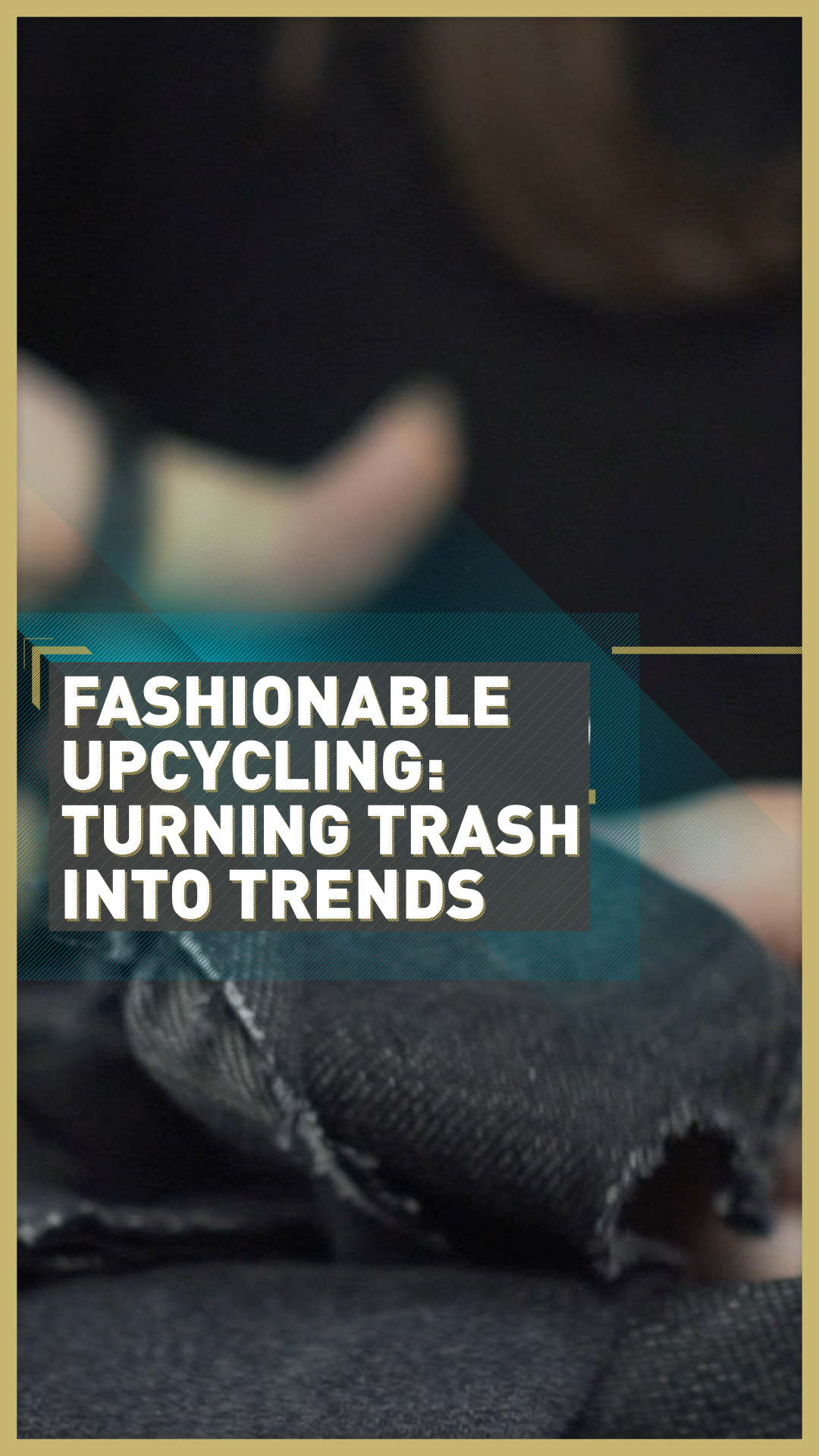02:19

A couple of months ago, the creators of JOA were post-graduates studying the future of fashion at the London College of Fashion. Now they are running a designer label that turns clothing charity shops can't sell into designer bomber jackets, costing more than $100.
JOA is named after the first letters of the the founders' names: Julie Chaussende, Anna Schuster and Olivia Lara. Each of the brand's bomber jackets are created from three garments that were first rejected from charity shops.
According to Lara, one of JOA's designers: "By buying [a bomber jacket], you save three pieces of clothing from going to a landfill."
They started JOA to combat the environmental impact of the fashion industry. The vast majority of clothing produced worldwide, 73 percent according to the Ellen MacArthur Foundation, end up in a landfill site or are incinerated.
Only 12 percent of worn clothes are donated. The clothing industry as a whole is also the second largest water polluter after oil, and release more carbon emissions that all planes and boats combined.

The founders of JOA: Fromleft, Olivia Lara, Julie Chaussende and Anna Schuste wearing their bomber jackets. /Natália Luz
The founders of JOA: Fromleft, Olivia Lara, Julie Chaussende and Anna Schuste wearing their bomber jackets. /Natália Luz
The wider fashion industry is attempting to incorporate more sustainable practices in the production process. The British Fashion Council (BFC) made sustainable fashion a core part of the last London Fashion Week.
Stephanie Phair, Chair of the BFC, told CGTN Europe: "We at London Fashion Week itself are making all the efforts to be sustainable, to think about zero waste – and to really think about ways of using what we do, which is a platform to showcase designers that themselves are sustainable."
However, some activists have criticized the steps the mainstream fashion industry has taken to combat these issues. "I feel like what the fashion industry has done so far is acknowledge that there is a problem," said Aja Barber, a sustainable fashion influencer and writer.
"But acknowledging and really acting on the change that we need in order to have mutually assured futures are two different things."
JOA is trying to combat this issue by upcyling, a process of using old or discarded clothing in a design process. It is becoming more popular as the environmental cost of the garment industry is increasingly well-known.
"A lot of sustainable brands focus on making sustainable fabrics, but they kind of forget that they accumulate all that waste," Chaussende said.
"For us, it makes more sense to first solve the problem of the waste before creating a new fabric."

Extinction rebellion protested at this season's London Fashion Week because they claimed the British Fashion Council was not dealing with the environmental cost of the industry fast enough. /Natália Luz)
Extinction rebellion protested at this season's London Fashion Week because they claimed the British Fashion Council was not dealing with the environmental cost of the industry fast enough. /Natália Luz)
JOA also has a service that takes clothes with some sentimental value to the owner that they can't wear anymore and turns those garments into bomber jackets. "The idea was born from losing someone I really loved, my aunt," Lara said.
"I had a lot of clothes from her that I really valued and that I felt very sentimental about. I came up with the idea that I could just take those pieces, cut them up how we usually do it in our studio, and then remake them into a bomber jacket.
"So I can carry a piece that has a lot of memory in it."
Schuster, another designer at JOA, said that trying to shop sustainably can be frustrating. "As a consumer, it's very frustrating to shop online and shop sustainable," she said.
"You have so many options, and you don't really know who to trust. But in the end, really double check what you buy.
"Double check where it comes from, maybe support your local community, go to charity shops, swap your garments with friends and please start repairing your garments to keep them longer in your wardrobe."